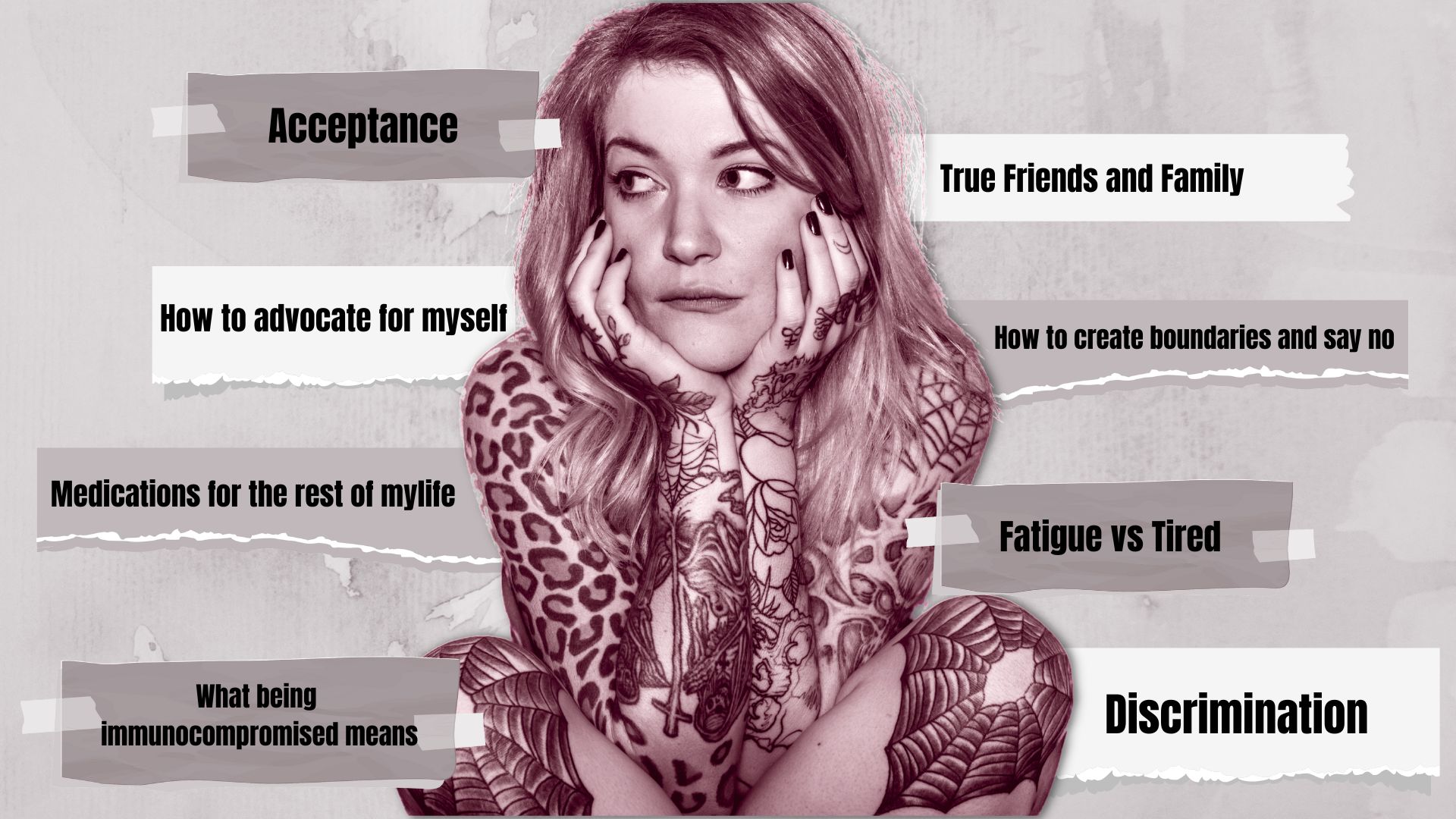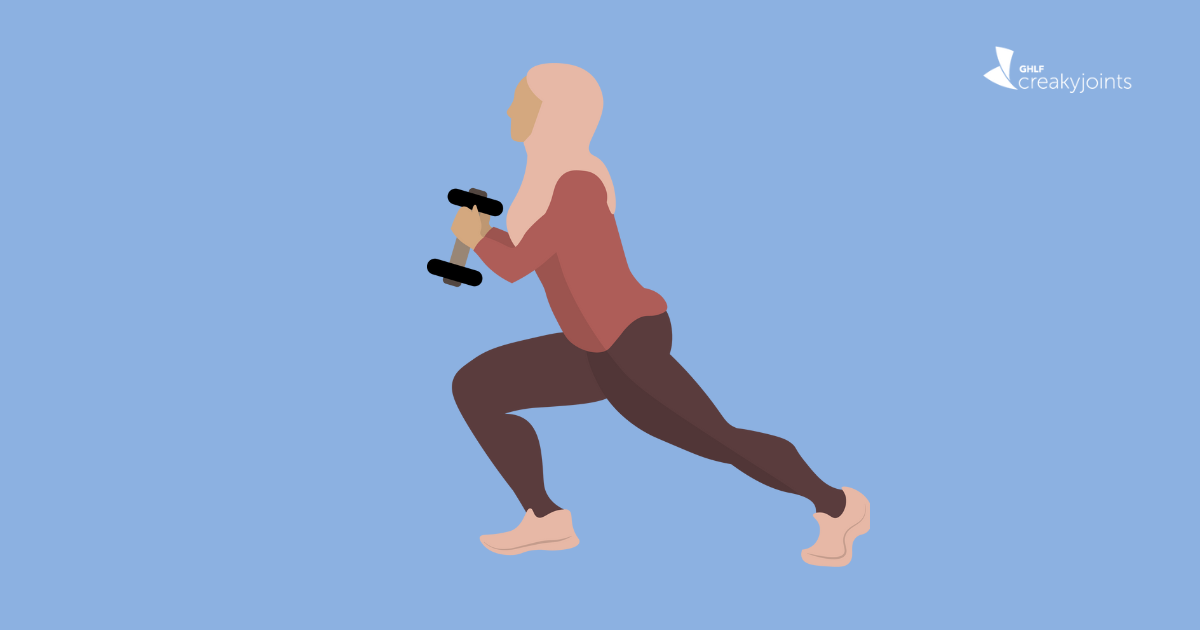After getting diagnosed with a chronic illness or rheumatic disease you may have found yourself having some pretty strange conversations with yourself:
“What is wrong with me and why don’t I know?”
“This isn’t me. I don’t even recognize this person!”
“Why are you doing this to me?”
“Why are you breaking down now, when I’m about to get married/get a promotion/have a baby?”
“My body hates me.”
“I hate my body.”
“What did I do to deserve this? I’ve always taken care of my body!”
“I feel like I’m taking crazy pills!”
“Why can’t I just be normal?”
All of these may add up to one big feeling that is sometimes hard to describe or identify: betrayal.
Rheumatic diseases, like rheumatoid arthritis, psoriatic arthritis, and ankylosing spondylitis, are autoimmune and inflammatory diseases that cause your immune system to attack your joints, muscles, bones, and organs. People living with a rheumatic disease — or related chronic conditions — have to deal with not just the physical symptoms but a host of other things that come along with the illness, like chronic pain, stress, exhaustion, disability, and emotional distress.
Because you can be affected in so many different ways — and your symptoms can ebb and flow and change over time — it’s easy to sometimes think that your body is out to get you.
How Patients Feel Betrayed by Their Body
Being on stage, dancing, and acting, was life for Kristi E. — until a diagnosis of rheumatoid arthritis thwarted her promising career. She was just 13 years old.
“When you’re a teenager, you feel like you can do anything, but not me. It felt like a bad dream, like I was living in someone else’s body,” says Kristi, now 29. “I was so aware of what my body was no longer able to do, of how weak I felt, and that it was beginning to break down way too early. I felt like my body had betrayed me.”
Charis H., 35, of Sacramento, California, recounted a similar experience after being diagnosed with ankylosing spondylitis. “I went from being a competitive athlete in college to permanently disabled,” they say. “I did feel betrayed; I felt like my body had failed me.”
Charis’ feelings were compounded by their doctor’s insistence that the pain was probably due to sports injuries and besides, they couldn’t have AS because “it’s a man’s disease.” This is not true — ankylosing spondylitis affects all genders — but the doctor’s words made them feel like they couldn’t trust what their body was telling them, says Charis, a disability advocate and CreakyJoints member.
Many people diagnosed with chronic pain conditions and rheumatic diseases experience similar feelings of being betrayed by their body, says Kristen Carpenter, PhD, Chief Psychologist in the Department of Psychiatry and Behavioral Health at The Ohio State University Wexner Medical Center. “It’s not uncommon for people with chronic illness to suffer a blow to their self-esteem or feel angry or fearful of, or less happy, with their body,” she says. “It can significantly affect self-confidence in every area.”
And we do mean every area. Lichen sclerosus (LS), a chronic autoimmune inflammatory illness that causes a painful rash on the genital area, made sex feel impossible for Leyanna O., 25.
“My boyfriend and I were talking about getting married but I felt like I couldn’t plan for that, not knowing when or if I’d ever be comfortable having sex again. I felt like my body ruined my future,” she says. “It also changed how I saw myself. I used to think of myself as a really sexual person, that was a big part of my life, and then after LS, even dressing or feeling sexy felt wrong. I was really angry; I hated my body.”
Kristi agrees: “When you feel like you can’t trust your own body, you lose confidence. I’ve always been a very creative person and losing the ability to dance and sing shook my core identity.”
Betrayal: An Umbrella Term for Different Feelings
“Feeling betrayed by your body is a very normal reaction for someone with any type of chronic illness but you don’t want to get stuck there,” says Joanne Frederick, PhD, Licensed Mental Health Counselor in Washington, D.C., who specializes in treating people with chronic and terminal diseases. “It is essential to deal with these thoughts and feelings so you can move on to acceptance and healthy action.”
Step one of dealing with this sense of betrayal: Figuring out what feeling betrayed really means to you regarding your body and your situation. “Betrayal” is actually an umbrella term for a bunch of difficult feelings, she says. Teasing them apart can help you better identify and deal with them.
Feeling betrayed may stem from feeling:
A loss of control
“Many patients have the experience where all of a sudden, you hardly have any say in what happens to your body,” Dr. Frederick explains. Your body may move or perform in unexpected ways that feel painful, frustrating, limiting, or even embarrassing. Being at the mercy of doctors, medications, treatments, and other parts of the medical system can add to that feeling.
Scared
A large part of betrayal is fear. Chronic illnesses may vary in symptoms, treatments, and impact but one thing is always true: Your life is changed forever, from that point forward. You may be worried about what changes you’ll have to make and what your long-term prognosis will be.
Surprised
Getting a correct diagnosis is often a complicated process for rheumatic diseases and other chronic illnesses. You may be surprised by the diagnosis. For instance, what you thought was an ankle injury could turn out to be rheumatoid arthritis, a debilitating lifelong condition. This surprising discovery can feel like a betrayal. In addition, all the ups and downs of flares and periods of remission can be unpredictable and surprising in the worst way.
Angry
Anger is a key component of any type of betrayal because betrayal feels inherently unfair. Feeling red hot anger at your body is normal and understandable, especially when it forces you to change your life in significant ways. For instance, coping with a loss of independence can make you feel trapped by your body and angry, Dr. Frederick says.
Misunderstood
Many rheumatic and chronic illnesses are “invisible,” which means that you may look “fine” on the outside, especially to people who don’t know you’re sick or understand your condition. This discrepancy between how you appear to others and how you really feel can make you feel isolated, misunderstood, and betrayed by the main tool you use to communicate with others.
Exhausted
Having a chronic illness can make everything from day-to-day tasks to long-term planning feel so much more difficult. “You may feel betrayed by your body because of the burden of all the extra hard work, expense, and long-term medical care it takes to manage your illness,” Dr. Frederick says
In denial
You may feel betrayed and confused by your body because you aren’t yet ready to accept what is happening to you. “You may want to ignore or minimize your illness, hoping it will go away on its own — and when it doesn’t, you may feel betrayed,” Dr. Frederick says.
How to Get Past Feeling Like Your Body Has Betrayed You
Once you’ve identified what you’re really feeling, here are some tips from our experts and people with rheumatic diseases and chronic illnesses to help you move past betrayal to a place of peace with your body.
Talk it out
Venting about your body to a sympathetic loved one can help you release difficult feelings. Even though they can’t fix the problem for you, feeling heard and loved can help you move through that feeling of betrayal, Kristi says. “They can help you see your body from a more forgiving and kind perspective.”
If you’re still struggling after talking to a loved one, and you’re showing signs of anxiety or depression, consider reaching out to a mental health professional.
Take a social media break
Facebook and Instagram invite comparisons. Seeing all of your friends and acquaintances doing things effortlessly that you now struggle to do can leave you feeling left out, disappointed, and betrayed by your body.
For Leyanna, taking a social media break for a few months really helped her to reconnect with her body — without the pressure to compare it to others or to older pictures of herself. “Seeing a Facebook memory of me doing a mud run with a big grin, that was a real punch to the gut,” she says.
Journal
Writing out your feelings — especially the hard ones — gives you a chance to emote, relieve stress, and reflect, says Dr. Carpenter. Write out why you’re feeling betrayed and then make a list of the things your body can do now.
Outline your body
Leyanna found comfort in an elementary craft project. She laid on a big piece of butcher paper and her therapist drew an outline around her body with marker. She then used the markers to decorate and label her body with words describing her feelings.
“It just helped me see my body as more than my disease and that I’m a work of art, still in progress,” she says.
Get a self-care treatment
A good massage, haircut, or facial can feel amazing but when you’re at odds with your body, pampering can be transformative. It’s a way to see your body and show it love in a practical way, says Stephen J., 60, who has inflammatory arthritis.
“For years I had never had a real massage because it felt like a waste of time and money,” he says, “but now regular massages are one of the best things to manage my pain.”
Have a sense of humor about it
“When someone asks me to play basketball or something else that hurts my knees I joke, ‘If only I’d bought the extended warranty!” Stephen says, adding that he also loves to send and receive memes and other jokes about arthritis. “It helps me not take myself too seriously.”
Respect your limits
A common temptation for people feeling betrayed by their chronic illness is to “push through the pain” and force their body to do what they feel it is “supposed to.”
“Don’t do that; pushing yourself past your limits can make those feelings of betrayal more intense because it sets you up for failure and pain,” Dr. Frederick says. “If it hurts or will hurt, and you hear yourself saying, ‘I should’ or ‘I’m doing it anyway,’ tell your inner critic to take a seat.”
Try a new way to move
Charis found a love for modeling. Kristi was able to channel her creativity into gentle dancing. Leyanna and her partner found different ways to have sex. The key isn’t to give up what you love doing in your body but to find a new way to do it that respects your current situation, Dr. Carpenter says.
Stop trying to ‘fix’ your body
“Part of betrayal is seeing your body as broken and a problem to overcome or fix but that mindset is hurtful,” Dr. Frederick says. “Instead of trying to fix yourself, what if you treated your body kindly? What do you think that would look like?”
When you shift your intentions to self-love and nurturing, you may still do the same things but they will feel much more positive.
Get pictures taken that show your body in a way you like
To honor her sexy side and boost her self-confidence, Leyanna did a steamy boudoir photo shoot. “They dolled me up like a 1950s pin-up girl and there was really flattering lighting and poses,” she says. “I loved the results. It helped me see myself in that way again.” (Read about an art exhibit of pin-ups with disabilities is redefining ableist standards of beauty.)
You don’t have to do “sexy” if that doesn’t feel comfortable but having pictures that show your current body in a happy, positive, strong way can help you remember what you love about it.
Get adaptive tools
“Every time I used that damn can opener I’d feel betrayed by my body all over again,” says Angie K., 52, who has osteoarthritis. As a mom, she is constantly in the kitchen cooking for her family, a task that often causes severe pain.
“One day, I threw out the manual can opener and bought an electric one. I didn’t want to spend extra money on something ‘silly,’ but I was sick of feeling bad about myself every time I opened a can.”
Other assistive devices that might be helpful include utensils with wide, lightweight no-slip handles and hooker and zipper pulls.
Volunteer
“I’ve never felt more confident or powerful in my body than when I was helping neighbors clean up after the wildfires,” says Carlie B., 37, who has fibromyalgia and reactive arthritis. “It took a lot out of me but in a good way. I was proud of my body and its ability to help in that moment. I may not be able to do what I used to do but I can still help in many good ways.”
Volunteering doesn’t have to turn into a formal long-term commitment. Seek opportunities that allow you to help others while respecting your body’s needs and boundaries. Even sharing your story on social media, or interacting with patient advocacy groups, can allow you to connect with and help others in a meaningful way.
Connect with others
Nobody understands those complicated feelings quite like others in similar situations and thanks to the internet it’s easier than ever to connect with them. Look for online or in-person support groups.
You can follow CreakyJoints on social media — Facebook, Instagram, Twitter, TikTok, YouTube — to connect with other patients who are seeking community for living with arthritis and other chronic illness.
Consider gentle exercise
Carlie used to be a runner and was devastated when she could no longer do her daily jogs. Then she decided to get certified as a yoga instructor, teaching “restorative” yin yoga that is extra gentle on the joints. “Teaching my class has helped me meet a lot of people in similar situations and seeing their bodies do great things helps me appreciate mine more as well,” she says.
Stimulate your mind
You are so much more than just your body and learning something new can give you a fresh perspective on all the great things you can do, Dr. Carpenter says. Take a class in a subject you’re interested in, get a new skill or certification for work, read a book, listen to a podcast, do a puzzle, or any other type of mental challenge.
Quiet the negative self-talk
All of us have an inner critic but it can get extra loud when you’re feeling angry at or disconnected from your body. Dr. Carpenter recommends practicing positive and loving self-affirmations. For example:
- “My body deserves love”
- “I choose not to let my illness define me”
- “Today I choose to be at peace with my body”
If you’re still struggling with negative self-talk, consider seeking help from a professional therapist.
Get professional help
Sometimes feelings of betrayal run very deep and/or indicate an underlying mental condition. A therapist who specializes in treating people with chronic illness can be a great help, Dr. Frederick says. Depending on your diagnosis, a psychiatrist can also help you with getting medication treatment for a mental health condition
Get Free Coronavirus Support for Chronic Illness Patients
Join the Global Healthy Living Foundation’s free COVID-19 Support Program for chronic illness patients and their families. We will be providing updated information, community support, and other resources tailored specifically to your health and safety. Join now.
Interview with Joanne Frederick, PhD, Licensed Mental Health Counselor in Washington, D.C.
Interview with Kristen Carpenter, PhD, Chief Psychologist in the Department of Psychiatry and Behavioral Health at The Ohio State University Wexner Medical Center.






